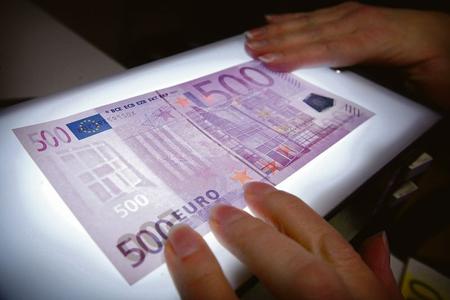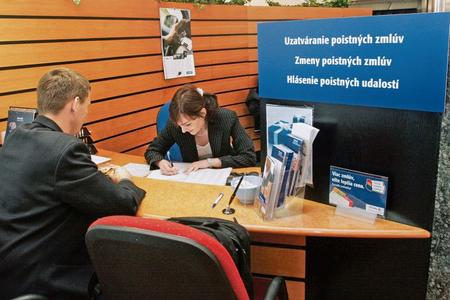Finances and Advisory, page 12
Investment and taxes in Slovakia
Net profits of Slovak banks fell in 2012
THE AGGREGATE after-tax profits of Slovak banks amounted to €480 million in 2012, a fall of 29 percent compared to 2011. The drop was caused in particular by the introduction of a special bank levy and a one-off extraordinary bank levy, together with an increase in credit risk charges and provided guarantees, the National Bank of Slovakia (NBS) announced on April 16, as quoted by the SITA newswire.
Leasing market sees little growth
THE SLOVAK leasing market, which was hit hard by the economic crisis in 2009, saw little growth in 2012 and is only slowly returning to its pre-crisis level. Expectations for 2013 are not very optimistic, with leasing companies pointing to the heavier burden of income and payroll taxes on business clients as well as the effect of higher registration fees for new cars in Slovakia.
EU takes steps towards a banking union
THE EUROPEAN Union has devised an ambitious plan to create an integrated banking union for Europe, with EU leaders viewing the strengthening of the economic and monetary framework as a remedy for the current financial crisis. Slovakia, as a member of the eurozone, is supporting and participating in this process.
New leasing firm arrives in Slovakia
THE NUMBER of leasing companies operating in Slovakia has grown by one with the addition of an affiliate of the Czech firm s Autoleasing in May. The company, which has been operating in the Czech Republic since 2004, entered the Slovak market via a wholly-owned subsidiary called 's Autoleasing SK'. The company is part of the international Erste Group and is offering Slovak clients consumer loans to finance new as well as used passenger and commercial vehicles, the SITA newswire reported, citing the leasing company.
One bank fails stress tests
ONE bank operating in Slovakia failed to pass sector-wide financial stress tests conducted in April by the National Bank of Slovakia (NBS). The NBS did not, however, identify the bank, the Sme daily wrote on its website.
New €5 banknote goes into circulation
MARIO Draghi, the president of the European Central Bank, launched into circulation a new €5 banknote in Bratislava in early May. The move followed the first meeting of the ECB’s Governing Council to be held in Slovakia, the SITA newswire reported.
Institutions and associations in the insurance sector
-Ministry of Finance, www.finance.gov.sk -Slovak Insurance Association (SLASPO), www.slaspo.sk-Slovak Insurers’ Bureau (SKP), www.skp.sk-Slovak Association of Insurance Mediators (SASP), www.sasp.sk-Association of Financial Agents and Advisers (AFISP), www.afisp.sk
Man buried car to make claim
IN A FAILED attempt at insurance fraud, a 31-year old man buried his BMW X5 in a garden and reported it stolen. His plan, driven by his inability to repay his loans, was to make a claim with the insurance company and dismantle the car to sell it for parts. However, his plan failed and he now faces fraud charges, the SITA newswire wrote in early April.
Insurers report higher corporate interest
FIRE, flood or IT failure may bring down, or at least cause significant problems to, an otherwise financially healthy company. Thus insurance companies believe that even the current economic crisis should not be a reason for entrepreneurs to leave their business uninsured. Insurance companies in Slovakia report increased interest in insurance of assets, but say liability insurance is growing too.
Gender equality rules force insurance changes
WHILE MANY agree that gender equality is a laudable goal, particularly in the workplace, many insurance companies believe that, when calculating the prices of their policies and benefits payouts, not taking gender into consideration goes against basic insurance maths and undermines the underlying principles of the sector. Nevertheless, insurers in Slovakia have bowed to pressure from Brussels, and have re-designed their insurance products to be unisex. Some of them even used this opportunity to make their products more attractive.
Over 7% of cars have no insurance
MORE than 183,000 motor vehicles are not covered by liability car insurance, which is compulsory in Slovakia. The Slovak Insurers’ Bureau (SKP) registered at the end of 2012 a total of 2.355 million insured vehicles; however the total number of motor vehicles in Slovakia based on the statistics of the Interior Ministry is 2.538 million. Thus the number of uninsured vehicles accounted for 7.2 percent of all registered vehicles. In the previous year 171,000 vehicles were without liability insurance, the SITA newswire wrote.
Romania's Astra enters Slovakia
ROMANIAN insurance company Astra has expanded its operations in Europe. In line with its strategic plan of development for 2012 it opened a branch in Slovakia in December, the SITA newswire wrote.Astra plans to first focus on property and car insurance in Slovakia, i.e. insurance products in which the parent company has a strong share on the Romanian market.
Fraud on the rise, say insurers
SLOVAK insurance companies are reporting an increase in fraudulent behaviour by clients, ascribing this to the current difficult economic situation, some fraudsters’ visions of ‘easy money’, and the use of more sophisticated methods to uncover insurance fraud. Insurance companies have intensified their fight against fraud, pointing out that fraudulent claims lead to higher premiums for honest customers.
Winter brought record pothole claims
THE LONG and harsh winter has left its ‘legacy’ on Slovak roads in the form of thousands of potholes. The result is damaged cars and a rise in insurance claims. Allianz – Slovenská Poisťovňa, the biggest insurer in Slovakia, registered 1,199 insurance claims caused by potholes during the winter season from the start of December through to the end of March. The total claims reached €787,000, putting the average cost of damage at as much as €660 per vehicle, the insurer wrote in its press release.
Insurance sector profits down 20%
THE PROFITS of insurance companies operating in Slovakia amounted to €155 million in 2012, which was a 20-percent drop compared to the previous year. The National Bank of Slovakia (NBS) ascribes this decrease to particularly high profits earned by the insurers in 2011. The result recorded by insurance companies in 2012 is the third highest over the monitored history in terms of profitability, the SITA newswire reported.
Some insurance companies in Slovakia
-Allianz-Slovenská Poisťovňa, www.allianzsp.sk -Generali Slovensko, www.generali.sk-ING Životná Poisťovňa, www.ingpoistovna.sk-Kooperativa Poisťovňa, Vienna Insurance Group, www.kooperativa.sk -MetLife Amslico, www.metlifeamslico.sk-Union Poisťovňa, www.union.sk-Uniqa Poisťovňa, www.uniqa.sk
Only 1/3 of households have insurance
IN SPITE of several natural disasters to have hit Slovakia during recent years, only one third of the population has home insurance. As many as 72 percent of people in Hungary have home insurance, and about one half in the Czech Republic, Poland and Slovenia, according to a survey conducted by Generali PPF Holding in nine countries in central and eastern Europe. The situation is worse in Croatia, Serbia and Bulgaria, the SITA newswire wrote in April.
Financial situation of households
WHILE as many as 87 percent of Slovak citizens consider the economic situation in Slovakia to be bad, more than one half of them (54 percent) view the financial situation of their own households as good, the TNS Slovakia agency found during a survey it conducted on a sample of 1,000 respondents between November 3 and 18. The survey was part of the Eurobarometer public opinion poll, conducted in 27 EU member countries and six candidate countries, the SITA newswire wrote.
Bank deposits exceed €25 billion
THE VOLUME of bank savings of Slovak citizens exceeded €25 billion last year for the first time in the country’s history, Poštová Banka reported in mid February, citing data from the National Bank of Slovakia. This was an increase of €1.3 billion compared with 2011.
Living on credit is more common
NEARLY every second person in Slovakia says that they are now able to pay for some items via instalments. This is one of the results of a survey conducted by the 2muse agency for VÚB bank last October. When discussing the survey, 2muse research director Michal Višinský said that in spite of the difficult economic situation, living on credit is becoming more common in Slovakia, although this has been a slow and gradual shift, the SITA newswire wrote on February 8.
- Last Week: Of hired assassins, fake guesthouses and hybrid operations
- “Bože môj”: In search of my Rusyn self
- Foreigners’ Police promise faster bookings and new service desks starting Monday
- Young Slovak’s breakthrough wins him grand prize at world science competition
- Bratislava switches to warmer street lighting in response to public criticism
- How to spend 48 hours in Bratislava
- Slovak brewers win hearts in Porto with beer inspired by a childhood favourite
- Jordanian runs Lebanese restaurant in Bratislava: Slovaks welcomed me better than Austrians
- Last Week: Of hired assassins, fake guesthouses and hybrid operations
- “Bože môj”: In search of my Rusyn self
- Bratislava switches to warmer street lighting in response to public criticism
- Foreigners’ Police promise faster bookings and new service desks starting Monday
- How to spend 48 hours in Bratislava
- Young Slovak’s breakthrough wins him grand prize at world science competition
- No laughing matter: Slovakia’s top comedians kicked out of state-run venue
- Jordanian runs Lebanese restaurant in Bratislava: Slovaks welcomed me better than Austrians
- “Bože môj”: In search of my Rusyn self
- Last Week: Of hired assassins, fake guesthouses and hybrid operations
- 3 free things to do in Bratislava in the next seven days
- Weekend: Festivals abound, enjoy folklore, theatre, music Photo
- Bratislava switches to warmer street lighting in response to public criticism
- How to spend 48 hours in Bratislava
- EU red tape is choking innovation – and Slovakia could be the next casualty
- No laughing matter: Slovakia’s top comedians kicked out of state-run venue
- “Bože môj”: In search of my Rusyn self
- 3 free things to do in Bratislava in the next seven days
- Last Week: Of hired assassins, fake guesthouses and hybrid operations
- The hidden costs of Slovakia’s complicated tax system
- Making a fortune off pilgrims
- Top 10 events in Bratislava for foreigners
- No laughing matter: Slovakia’s top comedians kicked out of state-run venue
- How to spend 48 hours in Bratislava
- Foreigners’ Police promise faster bookings and new service desks starting Monday
- Last Week: Of hired assassins, fake guesthouses and hybrid operations
- News digest: Teachers to be graded like students, with the best-rated receiving bonuses
- Travelling hundreds of kilometres in pursuit of the perfect lightning Photo
- Weekend: Festivals abound, enjoy folklore, theatre, music Photo
- Young Slovak’s breakthrough wins him grand prize at world science competition
- In Slovakia, corporate volunteers restore castles, clean parks and plant hope
- Bratislava switches to warmer street lighting in response to public criticism More articles ›





